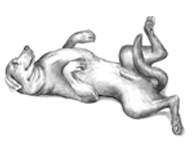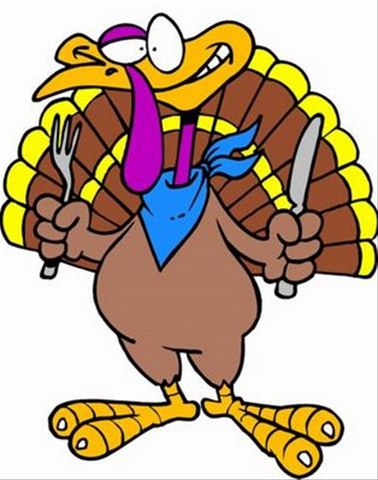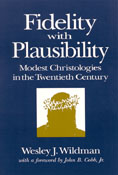
What exactly is “thanks” or “thankfulness”?
Is it a feeling, an emotion, a set of actions, or an attitude?
These are harder questions to answer than it might at first seem. I’ve been pondering them these past weeks as my wife and I work on teaching our three year old to say “thank you”and teach him to pray at meals and at bedtime. This is a relatively easy task, no more difficult than teaching the boy to wash his hands or sneeze into his sleeve. But as he adopts the habit of saying “thank you” to waitresses and clerks, his parents and teachers I wonder if anything deeper is going on. Is he just salivating at a ringing bell when he automatically responds “Merci” to the lady who hands him a croissant or do his actions connect with other feelings and ideas? I wonder. But I don’t wonder only about him. I also wonder what “thanks” itself means. What are we doing when we pause this week to say or think “thank you?”

We distinguish between authentic speech and rote repetition. I am unimpressed when an automated voice responds, “we are experiencing higher than normal call volume at this time, thank you for waiting.” Can a computer be thankful? I’m unmoved when the blank eyed stoner cashier at the local Esso gas station says “thanks, come again” without looking up from his magazine. Most of us, I conclude, see some meaningful distinction between the mere act of vocalizing “thank you” and saying those same words with feeling or intention. But does this mean that thankfulness is itself an emotion, a feeling? If so, then what does it mean for us to say that we SHOULD be thankful? How is this different from suggesting that we should feel emotional love toward someone?
I’m sorry dude, she’s just not that into you.
I know – I’m sure I’m needlessly complicating what should be a straightforward question, but I’m genuinely unsure as to the – hold on, here comes some Ph.D. level terminology – metaphysical status of thanksgiving. Is it a subjective emotion, a social act, a verbal utterance, or a statement about a fact in the world? If you have a spare moment, ready access to a logical positivist, and want to see something hilarious, ask that person about the meaning of the sentence “I thank you.” Stand back, because his or her head will likely explode. What are we doing when we pause to give thanks?
My hunch, and hunches are the raw material of most blogs, is that saying “thanks” is akin to what philosophers of language call a “performative utterance.” A performative utterance is a linguistic assertion that, instead of asserting or describing a fact, performs the very fact that it seems to be describing. Now that sounds complicated, but it’s extraordinarily simple – so simple that babies master the art of performative utterance. “Hi.” That’s an example, and one easily mastered by 1 year olds. “I do.” That sentence, in the context of court rooms or wedding ceremonies enacts a new status. The speaker is now under oath, or s/he is now pledged to a spouse. In short, philosophers of language are fascinated by those sentences that do not describe X, but rather bring about X even as X is uttered. If one wanted to be pedantic – and let’s admit that that ship sailed about two paragraphs ago – one could substitute the following utterance for “Hi.”
I wish to acknowledge your presence in a manner that concedes our mutual existence and conveys a culturally acceptable minimum of personal entanglement and debt, while at the same time avoiding any claim as to the status of any fact in the universe in order to avoid messy arguments that might ensue were you to disagree with said statement.
“Hi”is just so much simpler! It performs the act through its utterance.
My hunch is that “thanks” is much the same. If I’m correct then saying “thanks” doesn’t so much describe a fact (in this case an emotion or thought) in the world, as it enacts something. It brings about a new status. We say thanks as a kind of acknowledgement of debt. By saying thanks we offer a performance of indebtedness or obligation. Have you ever seen two dogs meet for the first time. If one dog is considerably smaller he will inevitably roll onto his back and offer up his belly as a sign of deference. So yes, I’ll go with that as a working metaphor. Thanksgiving is about offering up our soft bellies to God and acknowledging/performing our status as debtors. We acknowledge that we are, in Schleiermacher’s words, totally dependent on God for in God we live and move and have our being.
I think we go wrong, however, when we take these kinds of statements about our indebtedness as accurate descriptions of the world. When we pursue thankfulness to its logical end we end up with something like Anselm’s atonement theory in which Christ had to die to pay a literal blood debt that we owed to God. If this is an accurate description of the universe and its creator then God simply is not a God of grace, not the first person of the trinity but rather something more like the justice monger God of Marcion. Schleiermacher himself – and if you aren’t familiar with this Christian theologian then take the time to become so – knew better. He understood that a feeling of absolute dependence conveyed more about our religious status vis-a -vis the awesome creator than it did about any set of mundane facts. In saying thanks, we become thankful, we enact and acknowledge our own status as creatures of a transcendent creator.
This is very much like the issue that drove debates among Calvinists for generations regarding the efficacy of human actions. Was accepting divine grace a work? If so, then a strict doctrine of providence dictates that accepting grace must itself be an act of grace. Let’s not open that can of worms, but let’s do note that the Calvinists were on to something when they saw that accepting God’s grace might itself be a kind of performative action. When we acknowledge God, we do not so much describe the world (“That door is 6 feet tall.” “That restraint is open until midnight.”) as act out and ratify the very thing we speak of.
So, if I may close with an overly bold recommendation, allow me to suggest a new holiday tradition. But I warn you, this might earn you scornful looks from grandma. As you gather with friends and family this Thanksgiving – and I pray that you are blessed to be surrounded with both – and take turns going around the table and saying what you are thankful for, refuse. Look your fellow revelers straight in the eye and refuse to be thankful for X. That’s so mundane. Thankfulness for X is beautiful, but it brings act of thanks down to the level of descriptive speech. Give the following performative utterance a try.
“Thank you God.”
God, I acknowledge my status as deeply and absolutely indebted to you not for this or that thing or even for every determinate thing, but for being itself. My debt is so total, so final, so mind-bogglingly absolute that I refuse to say thank you for any determinate thing, for in so doing I would backhandedly and accidentally acknowledge other sources as the spring of other goods. Instead, I say simply that you are the source of my being, the upholder of my being, the end of my being. You are all in all. I concede this fact and ratify my status as creature to your creatorship by saying simply “thanks.”
And when your relatives and friends are done gaping at you, give them a sheepish look, fall to the floor, and offer them your soft underbelly.



